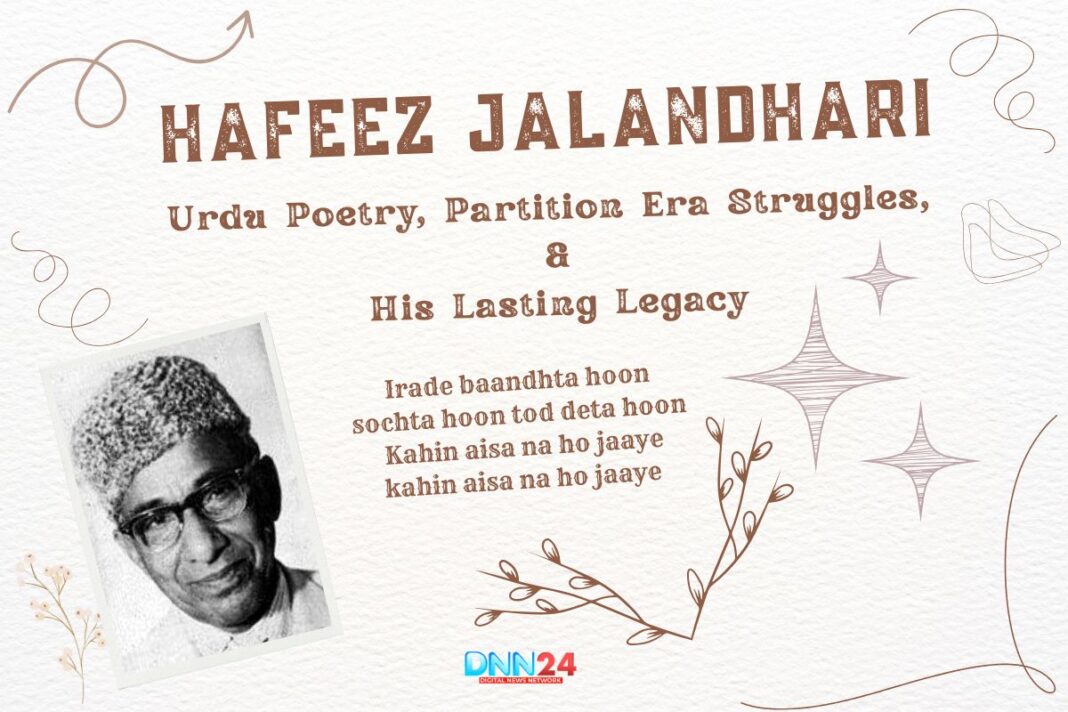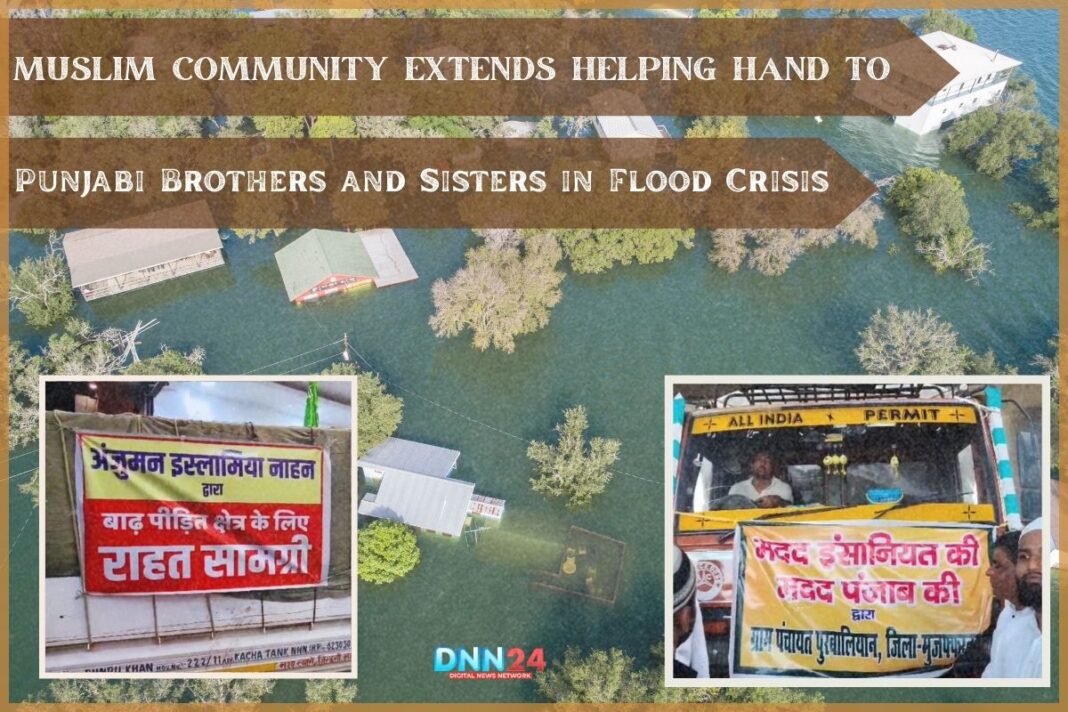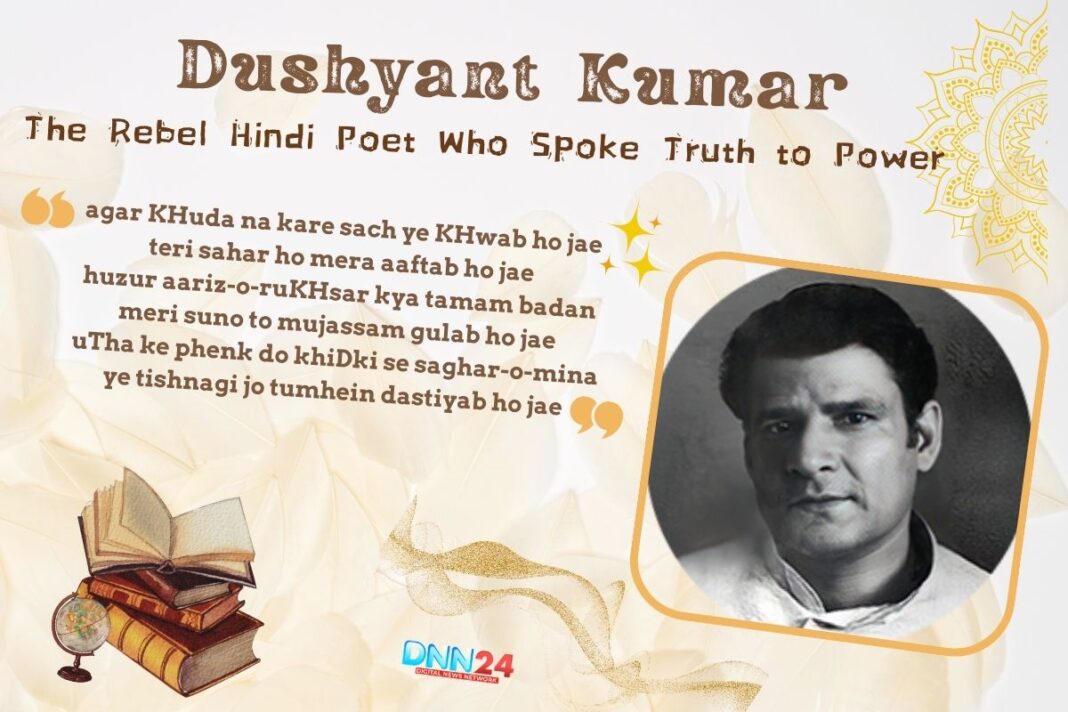Hafeez Jalandhari’s life sings across borders, religions, and the entire sweep of twentieth-century South Asian history. Born as Muhammad Hafeez in Jalandhar in 1900, his journey is not simply a poet’s story; it is the audacious drama of a soul that rose above hardship to inspire millions across divides.
hum hi mein thi na koi baat yaad na tum ko aa sake
Hafeez Jalandhari
tum ne hamein bhula diya hum na tumhein bhula sake
Through an undaunted spirit, Hafeez wove Urdu’s most celebrated verses, including an anthem for a new nation, hymns to old gods, conversations with longing, and messages of hope for divided hearts. His legacy is as much in what he wrote as in how he lived, rising and falling and refusing to quit, ever the youthful voice whispering, “Abhi to mein jawan hoon” (I am still young).
Childhood Sparks: The Boy Who Defied Failure
Not every day, a child turns adversity into art, but Hafeez Jalandhari did just that. Born into modest means and growing up in the vibrant lanes of Jalandhar, his formal education did not last beyond primary school. He struggled particularly with mathematics, failing multiple times and finally leaving school behind, a decision that in later years would be both a source of jokes and quiet pride in his autobiography.
dil abhi tak jawan hai pyare
Hafeez Jalandhari
kis musibat mein jaan hai pyare
Unlike many of his contemporaries who boasted long academic records, Hafeez found his teachers in the streets, in life, and in the sturdy rhythms of language itself. Inspired by the great Persian poet Ghulam Qadir Girami, young Hafeez wrote his first couplet by age seven. Though punished by a stern teacher, he was quietly encouraged by another, Master Gopal Das, who glimpsed the rare gift in the boy.
koi chaara nahin dua ke siwa
Hafeez Jalandhari
koi sunta nahin KHuda ke siwa
Gopal Das pushed him onto the poetry stage, forcing him into a mushaira, a government poetry contest during World War I. To everyone’s surprise, 17-year-old Hafeez wrote a poem on war and peace, and it won first prize: a gold medal and a princely sum of one hundred rupees. Amidst these small victories lay the seeds of something timeless, a poet choosing words over walls, finding shelter in rhyme and reason when the world seemed too much to bear.
Trials and Triumphs: Struggles and Untold Resilience
Hafeez’s growth as a poet was anything but linear. In his late teens, after a quick marriage and with the weight of a growing family, he juggled jobs: railway worker, perfume seller, tailor, contractor, porter, and even flour vendor, each profession reflecting an untold chapter of his resilience. For years, his poetry bought him little more than fleeting applause and bumpy travel.
dil-e-be-muddaa hai aur main hun
Hafeez Jalandhari
magar lab par dua hai aur main hun
At a point of nadir, he even contemplated ending his life in Kashmir’s hills after yet another failed business. But nature’s beauty saved him, and the thought that “Abhi to mein jawan hoon” would not let him go. That same line later shaped his most enduring, life-affirming poem. Even though jail could not quell his verses, he was imprisoned in 1919 for penning a protest poem against British rule.
dil se tera KHayal na jae to kya karun
Hafeez Jalandhari
main kya karun koi na batae to kya karun
Desperate yet undeterred, Hafeez tried launching a literary magazine with his mentor Girami. The effort failed, leaving him deeper in debt and heartbreak. Yet, instead of bitterness, these scars fostered depth in his poetry, lines that carried the ache of the subcontinent’s hope and loss, division and longing.
kyun hijr ke shikwe karta hai kyun dard ke rone rota hai
Hafeez Jalandhari
ab ishq kiya to sabr bhi kar is mein to yahi kuchh hota hai
When he reached Lahore, the city’s literary circles embraced him. Through nights of verses and rivalry, his name grew. Lahore’s poetic giants, like Pitras Bukhari and Abdul Majeed Salik, took him into their fold, catapulting the school dropout into a celebrated national figure. Every defeat, job, and rejection became the ink that filled his pen.
The Unheard Stories: Friendships, Failures, and Fortitude
Behind Hafeez’s public glory lived stories that rarely graced newspaper columns. He was known to sell his own ghazals to struggling young poets, a secret transaction of hope between the master and the aspiring. In his autobiography, “Baqalam Khud” (unfinished though it was), he reveals envy, jealousy, and the loneliness accompanying accolades.
jahan qatre ko tarsaya gaya hun
Hafeez Jalandhari
wahin Duba hua paya gaya hun
Friends recall how Hafeez would quietly sponsor poetry events, give away his prize money to those in need, and never let his fame change his fundamentally humble demeanour. Those who worked with him said his words “flowed like a river, easily showing deep emotion”, both in praise for his country and in gentle poems about love and longing.
nigah-e-arzu-amoz ka charcha na ho jae
Hafeez Jalandhari
shararat sadgi hi mein kahin ruswa na ho jae
More than once, his house became a haven for wandering writers and troubled souls, a refuge where verse was both shield and sword. Perhaps the most incredible untold story is of Hafeez’s emotional stamina, how he outlived every storm, reemerging more celebratory, forgiving, and more in love with life than before.
Celebrating Pluralism: The Poet Who Sang of All Gods
In an age ripped apart by religious division and Partition’s wounds, Hafeez Jalandhari’s poetry dared to imagine a South Asia joined by song, not hate. Though a devout Muslim, he wrote luminous verses praising Lord Krishna and Lord Ram, boldly proclaiming that beauty, love, and the divine cannot be shackled by identity. His ode to Krishna remains a standout, filled with spiritual longing and respect for all faiths.
o dil toD ke jaane wale dil ki baat batata ja
Hafeez Jalandhari
ab main dil ko kya samjhaun mujh ko bhi samjhata ja
To write such poems after the trauma of 1947 was more than a literary feat; it was moral resistance, a call for harmony in a world bent on discord. The wisdom in his lines is clear: compassion and empathy are not the monopoly of any creed, but every human’s shared right. Hafeez’s work is both an invitation and a challenge to see unity in diversity, the hidden kinship beneath outward difference.
ye mulaqat mulaqat nahin hoti hai
Hafeez Jalandhari
baat hoti hai magar baat nahin hoti hai
Even today, as lines harden across the subcontinent, Hafeez’s poems whisper of pluralism, not just as cultural tolerance, but as “a necessity in this shared human experience.” Nowhere does this hope resound more brightly than in his anthem for Pakistan, but the spirit of his vision was always larger than politics or borders.
Writings That Change Lives: From Epic Verse to Anthem
Hafeez Jalandhari’s literary legacy stands on many pillars, lyrical masterpieces like “Shahnama-e-Islam,” which recasts Islamic history with the epic grandeur of the Persian “Shahnameh”; soul-stirring geets and ghazals full of pathos and hope; bold nazms voicing the aspirations of a new generation; and, above all, the words to Pakistan’s national anthem.
be-talluq zindagi achchhi nahin
Hafeez Jalandhari
zindagi kya maut bhi achchhi nahin
“Pak Sarzameen Shad Bad,” adopted in 1954, still resounds as a call to unity. Yet, Hafeez remained a poet of the people, never confined by role or reward. His most popular verses, like “Abhi To Mein Jawan Hoon”, found their way into songs sung by legendary voices, lighting up the hopes of youth and elders alike.
arz-e-hunar bhi wajh-e-shikayat ho gai
Hafeez Jalandhari
chhoTa sa munh tha mujh se baDi baat ho gai
His collections, “Naghmat-e-Raz,” “Soz-o-Saz,” “Shahnama-e-Islam”, remain staples in Urdu literature, their themes echoing across decades. Hafeez wrote not to shock, but to inspire; not to divide, but to help readers survive and seek beauty even in adversity. Even today, poetry lovers across India, Pakistan, and beyond recite his verses, rediscovering their own stories in his words.
Legacy of Light: The Poet Who Taught Us to Dream Again
What sets Hafeez Jalandhari apart is the scale of his achievements and the unique way his life story continues to stir readers and artists today. Having lived through Partition, sorrow, and glory, Hafeez wrote from a place of empathy, casting his words as bridges over troubled waters. His poetry events drew crowds; his helpfulness uplifted the lost; his humility, as remembered by all, remained untouched by fame.
aane wale jaane wale har zamane ke liye
Hafeez Jalandhari
aadmi mazdur hai rahen banane ke liye
Even decades after he died in 1982, he is still spoken of as Urdu’s soulful voice, a poet whose legacy keeps asking us: What does it mean to be truly human? His anthem breathes unity, his unpublished lines counsel kindness, and his poems on pluralism ring more actual than ever, making each generation a little braver, a little kinder, and a little more willing to dream. Hafeez Jalandhari’s story tells every struggling artist: “Life is too beautiful to leave unfinished. Write on, for the world still waits for hope”.
Also Read: Sahir Hoshiarpuri: A River of Poetry and Resilience
You can connect with DNN24 on Facebook, Twitter, and Instagram and subscribe to our YouTube channel.



